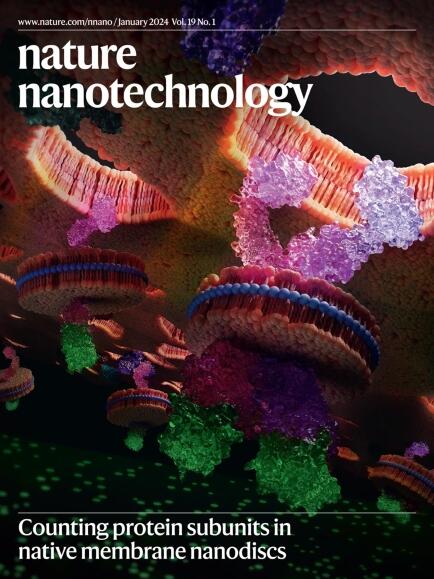A collagenase nanogel backpack improves CAR-T cell therapy outcomes in pancreatic cancer
IF 34.9
1区 材料科学
Q1 MATERIALS SCIENCE, MULTIDISCIPLINARY
引用次数: 0
Abstract
Chimeric antigen receptor (CAR) T cell therapy has revolutionized the treatment of haematological malignancies. Challenges in overcoming physical barriers however greatly limit CAR-T cell efficacy in solid tumours. Here we show that an approach based on collagenase nanogel generally improves the outcome of T cell-based therapies, and specifically of CAR-T cell therapy. The nanogels are created by cross-linking collagenase and subsequently modifying them with a CXCR4 antagonist peptide. These nanogels can bind CAR-T cells via receptor–ligand interaction, resulting in cellular backpack delivery systems. The nanogel backpacks modulate tumoural infiltration and localization of CAR-T cells by surmounting physical barriers and disrupting chemokine-mediated CAR-T cell imprisonment, thereby addressing their navigation deficiency within solid tumours. Our approach offers a promising strategy for pancreatic cancer therapy and holds potential for advancing CAR-T cell therapy towards clinical applications. A collagenase nanogel backpack enhances CAR-T cell therapy in pancreatic cancer by improving cell infiltration and overcoming physical barriers, enabling potent tumour regression and prolonged survival.


胶原酶纳米凝胶背包改善胰腺癌CAR-T细胞治疗效果
嵌合抗原受体(CAR) T细胞疗法已经彻底改变了血液系统恶性肿瘤的治疗。然而,克服物理障碍的挑战极大地限制了CAR-T细胞在实体肿瘤中的疗效。本研究表明,基于胶原酶纳米凝胶的方法通常可以改善T细胞治疗的结果,特别是CAR-T细胞治疗。纳米凝胶是通过交联胶原酶产生的,随后用CXCR4拮抗剂肽修饰它们。这些纳米凝胶可以通过受体-配体相互作用结合CAR-T细胞,形成细胞背包递送系统。纳米凝胶背包通过克服物理障碍和破坏趋化因子介导的CAR-T细胞监禁来调节肿瘤浸润和CAR-T细胞的定位,从而解决它们在实体肿瘤中的导航缺陷。我们的方法为胰腺癌治疗提供了一个有希望的策略,并有可能推进CAR-T细胞治疗的临床应用。
本文章由计算机程序翻译,如有差异,请以英文原文为准。
求助全文
约1分钟内获得全文
求助全文
来源期刊

Nature nanotechnology
工程技术-材料科学:综合
CiteScore
59.70
自引率
0.80%
发文量
196
审稿时长
4-8 weeks
期刊介绍:
Nature Nanotechnology is a prestigious journal that publishes high-quality papers in various areas of nanoscience and nanotechnology. The journal focuses on the design, characterization, and production of structures, devices, and systems that manipulate and control materials at atomic, molecular, and macromolecular scales. It encompasses both bottom-up and top-down approaches, as well as their combinations.
Furthermore, Nature Nanotechnology fosters the exchange of ideas among researchers from diverse disciplines such as chemistry, physics, material science, biomedical research, engineering, and more. It promotes collaboration at the forefront of this multidisciplinary field. The journal covers a wide range of topics, from fundamental research in physics, chemistry, and biology, including computational work and simulations, to the development of innovative devices and technologies for various industrial sectors such as information technology, medicine, manufacturing, high-performance materials, energy, and environmental technologies. It includes coverage of organic, inorganic, and hybrid materials.
 求助内容:
求助内容: 应助结果提醒方式:
应助结果提醒方式:


